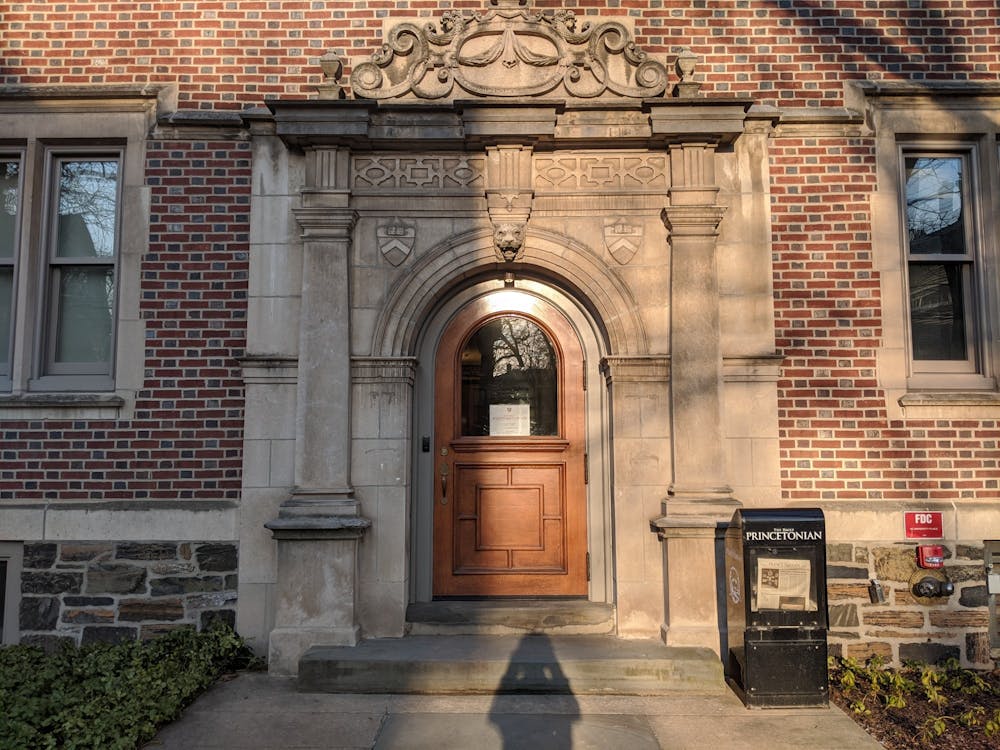Content Warning: This piece includes references to mental illness, suicidal thoughts, and disordered eating.
I decided to run for student body president when I was a high school sophomore. As a deeply introverted student terrified of speaking in class or in social circles, I didn’t really believe I had a chance at winning. Implementing my ideas in student government would be great, but more importantly, I would have to give a speech to the whole student body, putting me and my ideas firmly in the “public” eye. I lost by a landslide, of course, but the experience taught me an important lesson: I can make my own voice, and I am not forever resigned to be the student whose heart races every time she’s required to speak in class.
And I kept at it, plunging myself into experiences that petrified me. I applied to Princeton. I took giant leaps once I got to the University. As an associate opinion editor, I decided to run for editor-in-chief of The Daily Princetonian — because why not? It would force me to speak. As someone who felt small and unseen, I desperately needed to thrust myself into the limelight.
And thrust me into the limelight it did. The ‘Prince’ is now an organization of over 400 people — over 400 passionate, brilliant, and fierce people. I was suddenly in charge of setting the tone and vision and then pioneering the organization from the COVID-19-necessitated Zoom world to an in-person campus life.
At the same time, I was dealing with issues of body image and confidence. Standing nearly six feet tall, I’ve always been cognizant of the space I take up — I’ve obsessed over it. After years of working through an eating disorder, I had a subconscious fear that having a larger body would make me less attractive — and less effective as a leader.
Yet, with the support of several exceedingly kind professors, Counseling and Psychological Services (CPS) — a resource I would never have been able to afford without Princeton’s financial aid — and a network of close friends, I’ve proved myself wrong. I gained almost 40 pounds, and I’m proud of that. I’m often the biggest person in the room, but this hasn’t affected my ability to lead. If anything, embracing my own presence and size has made me a better leader, not to mention one who is able to think more clearly as a result of proper food and fuel.
Still, the road to recovery, of mind and of body, is not linear.
I’ve doubted myself, and I’ve been overwhelmed by days where I can’t cope with the sight of my own body. Yet, each failure has been a personal exercise, in leadership and in self-confidence.

I learned how to better communicate internal decisions to my staff when the decision to abandon daily print was ill-received. I published pieces with errors, and had to figure out how to address such errors — and how to own up to them publicly. I published pieces that crossed a clear moral line, and it was my responsibility to try and mend the community.
This job was the best thing I ever experienced. It also tore me apart, mentally and physically.
In February, I experienced my first debilitating panic attack; by April, I was having suicidal thoughts. By July, I felt like a complete failure of a leader; in October, I spent long nights crying on my office couch.
Despite spending 40 hours of my week surrounded by hundreds of people, I felt incredibly isolated. I wanted to humanize myself and simply hang out with my peers, but I was also their boss. I felt stranded in this liminal space where I couldn’t quite fully be a fellow student and fully be the leader of the ‘Prince.’ It’s a dynamic I never entirely solved.

And yet, I am proud of myself. I didn’t achieve everything I set out to do — no leader ever does — but I made my mark. And I carved a physical and mental space for myself.
I learned how to enter a room of trustees and give my report unflinchingly. I spoke my opinion to editors and staffers with resolve. I held my own when speaking to key players at the University. I trusted my own convictions, and I also developed the humility to change them. I strode unabashedly into a room where I took up more space — and I embraced that fact.
Throwing yourself into new and uncomfortable opportunities is crucial to personal growth. Speaking is hard; taking up space is hard. My year as editor-in-chief has taught me that I can, and that I should. The ‘Prince’ is an organization I’m deeply proud of, and it is full of editors and staffers who care about raising the stories of others. I worked hard to foster that culture, and I couldn’t have done it without pushing myself onstage.
Now I have spoken, I have taken up space, and never will I regret doing so.
Emma Treadway is soon-to-be editor-in-chief emerita of The Daily Princetonian. She can be reached at emmalt@princeton.edu or eic@dailyprincetonian.com, for the next few weeks.








